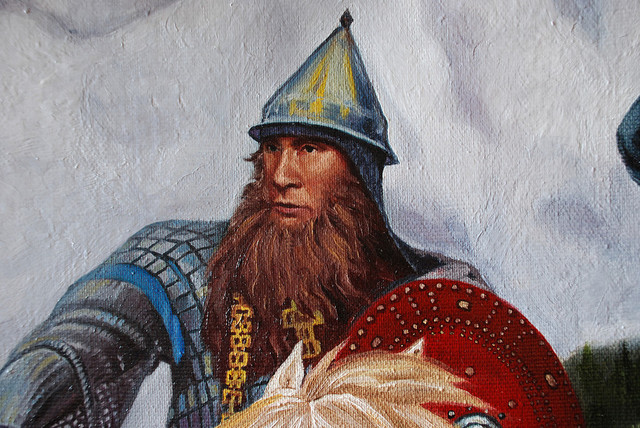Let us immediately emphasize the political aspects, leaving aside the historical ones, because it is clear to everyone that history in this case serves only as a political instrument.
For the Kaluga region, whose territory is crossed by the Ugra River, the desire to make it their trademark and promote it at the all-Russian level is absolutely understandable. In a fully federal state, no one would prevent them from carrying out such activities – this is the federalism and regionalism that many people talk about today. But only if Tatarstan could develop its own brands and commemorative dates – including the brands of Volga Bulgaria, the Golden Horde, or the Kazan Khanate. This would create competition between such regions, in which the federal center, being federal, should not take the side of one part of the federation against another.
But what is happening now in the so-called “Russian Federation” shows that it is not really a federation. If it were, the “federal authorities” could not afford to so blatantly ignore the position and well-being of one of the largest republics in the federation and the second most populous ethnic group. After all, no one prevents the largest ethnic group, which constitutes the majority in subjects of the Federation such as the Kaluga region, from celebrating such dates without looking back at anyone else. But we are talking about the fact that the complex and diverse people of the “Russian Federation” (“We, the multinational people” – as stated in its Constitution) are being forced to adopt a uniform point of view that is acceptable to some and unacceptable to others.
But this problem has another important component. Yesterday, on the same day that Vladimir Putin supported the initiative to make standing on the Ugra River a national holiday, he also supported another initiative – to extend the tax regime for the so-called “self-employed” from individual subjects of the Federation to the whole country.
What is interesting about the combination of these two news? If we criticize the second decision, the defenders of this government will surely tell us that private individuals who earn money from home pay taxes in most countries, and therefore Russia, facing economic problems, should not be an exception. Let’s assume that this is true. But then, why take people’s hard-earned money with one hand and use it to celebrate new holidays that have no real social demand and, moreover, that provoke conflicts within society? Do we have so few “patriotic” holidays that we need to waste additional millions of rubles, taken from people who earn their living by their own work, on all these festivities?
In this regard, we would like to remind you of what we recently wrote in connection with the campaign “in defense of the Russian language,” which was fueled by social networks and the media and ultimately led by the same Putin (https://golosislama.com/news.php?id=37495). It is clear that such “patriotic” provocations are made to divert attention from the unpopular decisions of the government, whether it is reducing the number of budget doctors in the regions or taxing the “self-employed”.
In other words, so-called “patriotism” is used as a cover for an essentially anti-patriotic policy directed against the citizens of Russia. Therefore, we must understand that the government and its propagandists expect us to react to such provocations in the usual way. Namely, to fall for them, to divide into opposing camps and start arguing with each other, whether it is about the Ugra River or the legalization of polygamy – issues that are completely irrelevant to the vast majority of those arguing.
What this government does not want is for us to ignore these provocations and instead ask them very uncomfortable questions. For example, “Where are our constitutional rights?” asked on behalf of the subjects of the Federation or the millions of religious communities. Or “Where is our money?” asked in the name of all Russians.

